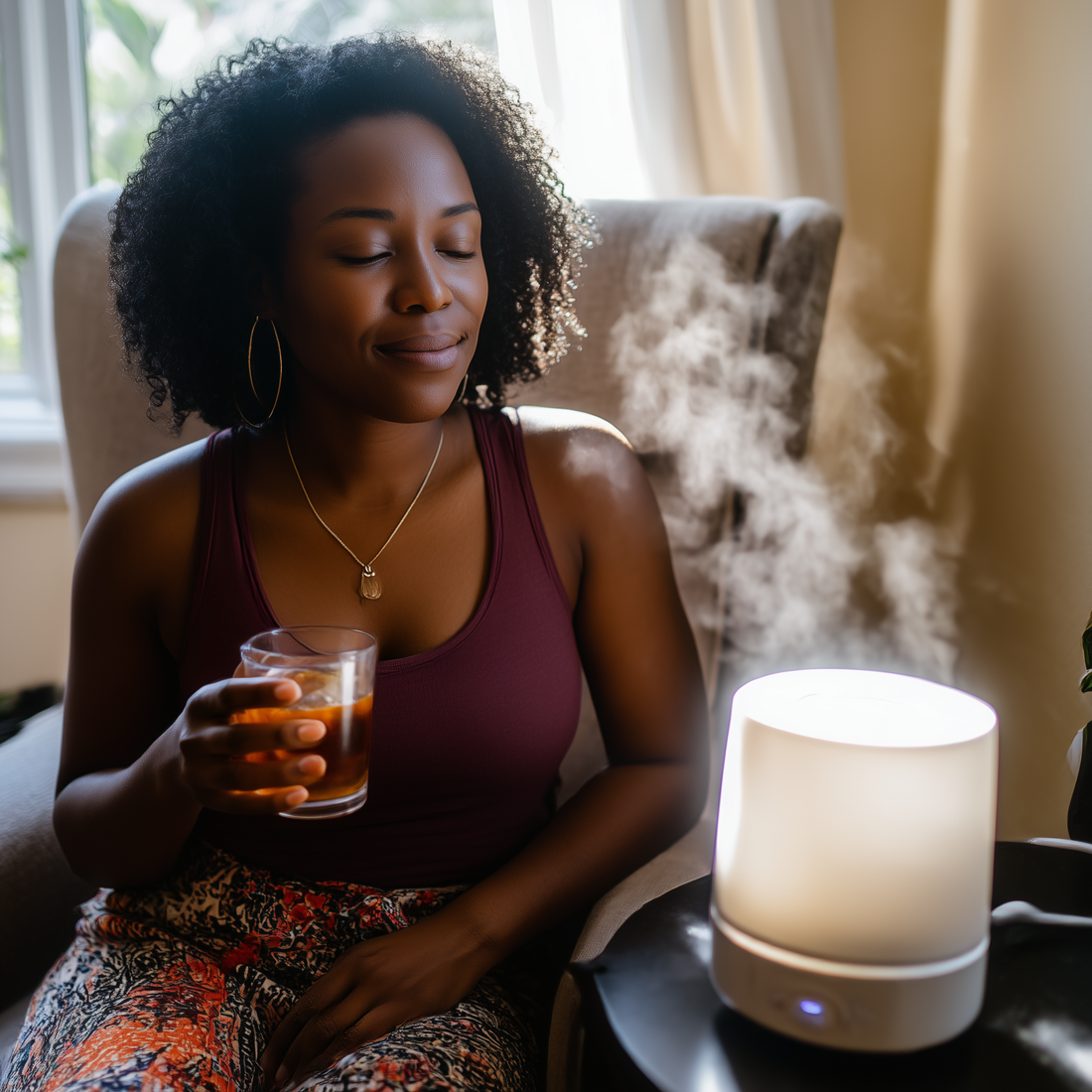
Why People with Melanin-Rich Skin (and Wider Noses) Should Seriously Consider a Humidifier
Samba TreeShare
If you’ve got beautiful melanin-rich skin and you live in a dry place—like Arizona, Colorado, or anywhere with low humidity—this message is for you.
We all know the pain of dry lips, dry skin, and waking up with a dry nose or mouth. But what most people don’t know is that for those of us with wider noses (a common feature among people of African descent), this dryness hits differently—and can actually affect your sleep, immune system, and even how your brain works.
Let’s break it all down in a way that makes sense—and may just change the way you treat your indoor air forever.
🌬️ What’s the Deal with Nose Shape?
Believe it or not, your nose shape is not random—it’s a survival tool passed down by your ancestors. Here's the basic difference:
| Nose Shape | Common in | Why It Evolved |
|---|---|---|
| Narrow nose | People from cold, dry climates (Europe, parts of Asia) | Warms and moistens the air before it hits the lungs |
| Wide nose | People from warm, humid climates (Sub-Saharan Africa, Pacific Islands) | Perfect for breathing warm, moist air without needing extra warming |
So what happens when someone with a wide nose, built for humid air, moves to a dry climate like Arizona or Colorado?
Your body struggles to add the moisture that your environment used to provide naturally. The result: dry sinuses, irritated skin, disrupted sleep—and even brain fog.
💨 Why Dry Air Is a Hidden Problem
Let’s be real. You don’t need to live in a desert to be surrounded by dry air. Common things that make your home super dry include:
-
Air conditioning units
→ These systems pull moisture from the air to cool things down. -
Central heating in the winter
→ Heaters warm up the air but dry it out even more. -
High altitudes
→ The air naturally holds less moisture, so it feels like you’re always parched.
In fact, the average indoor humidity in many homes drops below 20%—and for reference, the ideal range is 40–60%.
🧠 So What Does This Have to Do with the Brain?
When your nose and sinuses are too dry, a few things happen:
1. Less Filtration = More Sickness
Your nose is lined with something called mucosa (myoo-KOH-suh), which is a soft, moist tissue that helps trap dirt, dust, and germs.
If your mucosa dries out:
-
Germs get in easier
-
You get sick more often
-
Your immune system works harder than it should
2. Poor Sleep = Foggy Brain
Dry sinuses can mess with your breathing at night, causing:
-
Dry mouth
-
Snoring
-
Interrupted sleep
And when your sleep is off, your brain can’t do its nighttime cleaning job. That’s right—the brain clears out toxins while you sleep. If you’re not breathing well, this process gets interrupted, leading to:
-
Brain fog
-
Low energy
-
Trouble focusing
3. Less Oxygen Flow = Less Brain Power
If your nasal passages are dry and irritated, you're more likely to breathe through your mouth—which is less effective at delivering clean, moist, oxygen-rich air to your lungs. Your brain thrives on oxygen. Less of it? Slower function.
🧴 The Surprise Link: Oily Skin & Dry Air
Here’s something a lot of people with melanin-rich skin notice:
“Why is my face oily but still dry and flaky at the same time?!”
That’s because your skin is overproducing oil to fight off the dryness in the air. This is especially true for people with naturally oil-rich skin—again, something that evolved in humid environments.
In dry climates, your skin goes into panic mode:
-
It pumps out more oil to protect itself,
-
But without enough moisture in the air, it still dries out and cracks.
A humidifier helps balance this out by putting moisture back into the air so your skin doesn’t have to work so hard.
💧 So... Should You Get a Humidifier?
If you answer “yes” to any of these, it might be time:
-
Do you live in a dry climate, high altitude, or use A/C and heaters a lot?
-
Do you wake up with dry mouth, stuffy nose, or sinus pressure?
-
Do you have melanin-rich skin and wider nasal passages?
-
Do you deal with brain fog, itchy skin, or frequent colds?
If so, yes—a humidifier could make a world of difference for you.
And we’re not talking luxury spa equipment here. Even a small unit in your bedroom can:
-
Hydrate your nose and throat while you sleep,
-
Reduce the number of colds you get,
-
Keep your skin looking glowy and fresh,
-
Help your brain feel clearer in the morning.
🏡 Tips to Use a Humidifier the Smart Way
-
Set it to 40–50% humidity (too much can cause mold)
-
Use distilled water to keep bacteria away
-
Clean it weekly to prevent buildup
-
Run it while you sleep for full benefits
🌿 Final Thoughts
Your body is beautiful—and it was built to thrive in the environment your ancestors came from. But when that environment changes (like moving to a dry, modern climate), your body may need help adjusting.
A humidifier isn’t just a comfort tool—it’s ancestral support in a modern world.
Especially if you’re melanated and breathing through a nose shaped for lush, humid air... consider a humidifier not a luxury—but a health necessity.
